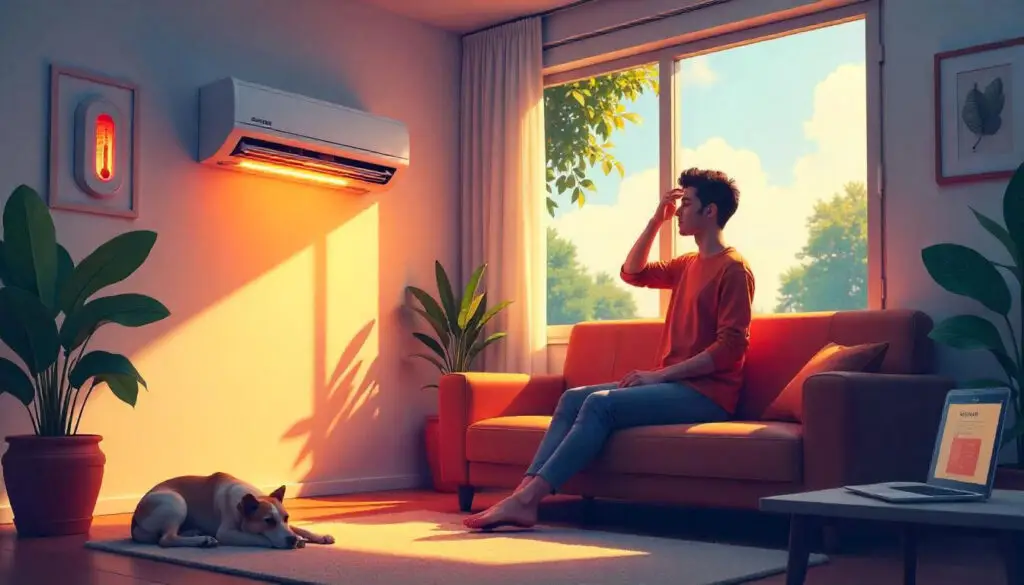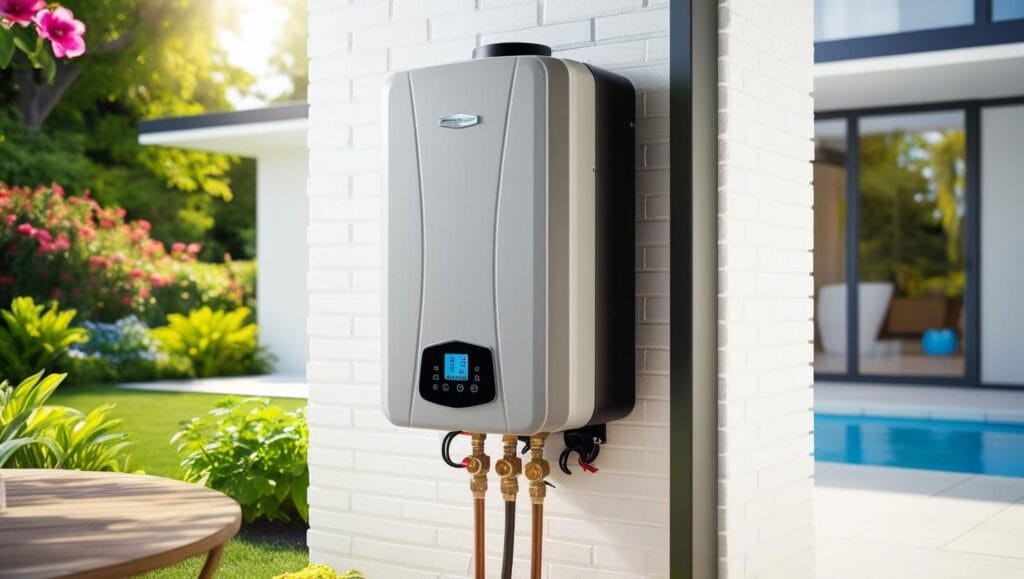In the summer, an air conditioner that runs without blowing cold air can be stressful. The basic purpose of an AC is to cool down the room’s temperature, but instead, an AC that gives out warm air is awful. Every problem has its causes, and in this case, multiple factors could be responsible. Many of these issues are common and can be fixed on your own, but some are more complex and require a technician to get your AC back to working properly. In this article, we’ll explore 10 common reasons why your AC might be running but not blowing cold air.
1. Dirty Air Filters
Clogged and dirty air filters with dust and debris may be the reason that is stopping your AC from doing its job. The full flow of air gets restricted, and the AC is not able to provide cold air, failing to cool your room. It gives weak air from the vents and causes ice to form on the coils.
It is best to check AC filters monthly in the summer and replace them when needed.
2. Thermostat Problems
Sometimes, the solution is right in front of you. A malfunctioning or incorrectly set thermostat can make your AC blow warm air. Maybe it’s accidentally switched to “Heat” mode, or the batteries are dead, leaving the display blank.
Check the settings and make sure it’s set to “Cool” and that the temperature is where it should be. Replace the old batteries if needed. If the problem is not solved, consider upgrading to a smart thermostat for better control and energy savings.
3. Tripped Circuit Breaker
When your AC does not turn on or keeps shutting off, a tripped breaker could be the reason. Check your breaker panel and try to reset it if you’re a little bit technical. Otherwise, call a technician; there may be an underlying electrical problem.
4. Low Refrigerant
Refrigerant is a chemical that is typically called the coolant, and it circulates in the AC. This coolant creates a cooling effect by absorbing heat from your home and releasing it outside. When there is a leak, the levels drop too low, and the cooling process breaks down. Hissing sounds, frost on the coils, or warm air from the vents are signs of this issue.
Don’t attempt to handle refrigerant yourself; it’s not safe and is illegal without proper certification. If you notice a leak, call an HVAC technician to inspect the system, repair the leak, and recharge it professionally.
5. Dirty Condenser Coils
The outdoor condenser coils of an AC release heat outside. But when they’re covered with dirt, leaves, or other debris, the heat cannot escape, and the AC won’t be able to cool your home effectively. The system runs with little effect, and your room remains hot.
You can clean dirty condenser coils yourself. First, power off your AC and unplug it from the socket. Then, use a garden hose to rinse off the debris gently. Avoid using pressure washers as they can bend the fragile fins. For a more thorough cleaning and system tune-up, it’s best to call a professional.
6. Blocked Air Vents
Closed or blocked air vents are another reason why cool air can’t circulate properly, preventing the cooling effect from reaching the entire space. Furniture or curtains might be placed in front of the vents, or the vents themselves may be closed, causing airflow to be partially blocked and disrupted.
Make sure all vents are fully open, and remove anything that might be blocking the airflow.
7. Broken Compressor
The compressor is the most important part of an air conditioner. It circulates refrigerant through the system to enable cooling. If the compressor fails or there’s a fault in the condenser, the cooling stops entirely. Signs of compressor failure include warm air blowing, loud or unusual noises, refrigerant leaks, ice on the coils, frequent AC tripping, and the unit turning on and off continuously.
You cannot resolve this issue on your own. Compressor repairs can be costly, so contact an HVAC professional immediately.
8. Frozen Evaporator Coils
Frozen indoor coils are another reason that can stop your AC’s airflow. You can remove the indoor air handler’s access panel, which is usually secured with screws. Locate the evaporator coils—they look like a grid of thin metal fins or tubes. Thick ice or frost on the coils and water pooling are signs of frozen coils.
Turn off your AC and unplug it. If you’re able to replace dirty filters, do it yourself; otherwise, contact a technician for assistance.
9. Faulty Fan Motor
The AC’s fan is located in the outdoor unit and plays a key role in blowing cool air into your home. If the fan stops spinning, struggles to move, or makes strange noises, the cooling efficiency of the AC will drop.
Turn off the air conditioner and inspect the fan area for leaves or dust. Gently clean it if needed. If the fan still doesn’t respond after cleaning, it may be time to hire a technician.
10. Old or Undersized AC
Old AC units lose their efficiency over time. If the AC is old and breaks down, it can be very difficult to find spare parts. Even if you do find them, they are often expensive.
If your AC is more than 10 to 15 years old and isn’t cooling your entire house properly, it might be time to consider replacing it with a newer model.
AC problems you can fix
Before calling the technician, try these simple checks:
- Change dirty air filters.
- Make sure your thermostat is set to “Cool.”
- Reset a tripped circuit breaker.
- Clear debris from around the outdoor unit.
- Open and unblock all vents in your home.
These easy steps might restore your cool air without needing a service call.
When to Call a Professional
Some air conditioner problems are beyond DIY fixes, and attempting to resolve them yourself can be dangerous.
Don’t wait if you smell burning, hear unfamiliar noises, or notice persistent ice buildup. These signs often indicate serious issues like refrigerant leaks, motor problems, or electrical hazards. In such cases, you should call a certified, licensed HVAC technician. This is essential for your safety and the proper functioning of your air conditioner.
Keep Your AC Running Smoothly
Regular maintenance is essential if you want your AC to continue providing cool air during the summer. Consistent upkeep is the key to long-lasting performance. Replace air filters promptly, keep vents clean, and schedule annual professional servicing. A well-maintained AC saves energy, prevents costly breakdowns, and ensures reliable cooling.
FAQs
Why is my AC unit running but not producing cold air?
It could be due to a dirty filter, low refrigerant, faulty thermostat, or a blocked condenser.
How do I get my AC cold again?
Clean the filter, check the thermostat, and inspect the outdoor unit; call a pro if needed.
Why did my AC suddenly stop cooling?
It might be a tripped breaker, dirty filter, thermostat issue, or low refrigerant.
Is it better to turn the AC off or up?
Turn it up if you’re away briefly; turn it off for long absences or system issues.
What is the best temperature for AC?
Set your AC between 24°C–26°C (75°F–78°F) for comfort and energy efficiency.



